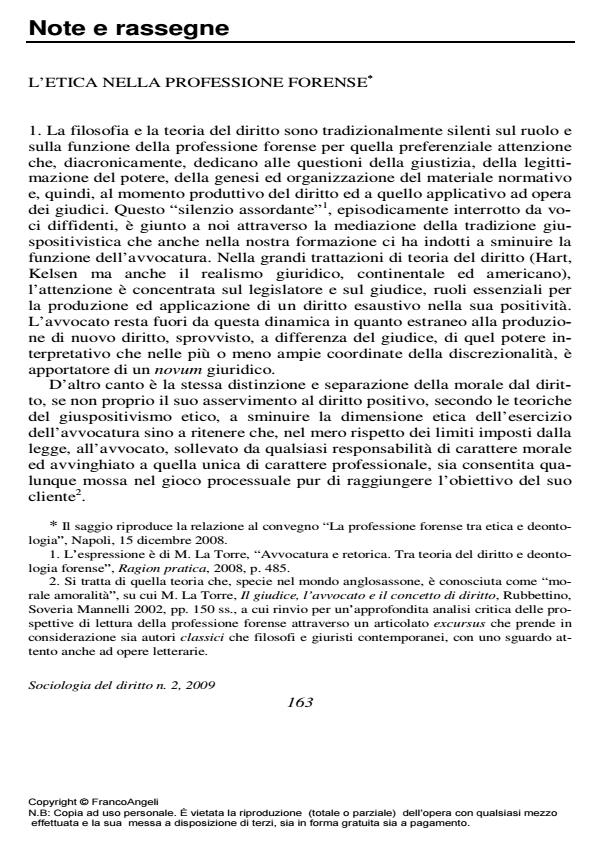L'etica nella professione forense
Titolo Rivista SOCIOLOGIA DEL DIRITTO
Autori/Curatori Angelo Abignente
Anno di pubblicazione 2009 Fascicolo 2009/2
Lingua Italiano Numero pagine 10 P. 163-172 Dimensione file 290 KB
DOI 10.3280/SD2009-002011
Il DOI è il codice a barre della proprietà intellettuale: per saperne di più
clicca qui
Qui sotto puoi vedere in anteprima la prima pagina di questo articolo.
Se questo articolo ti interessa, lo puoi acquistare (e scaricare in formato pdf) seguendo le facili indicazioni per acquistare il download credit. Acquista Download Credits per scaricare questo Articolo in formato PDF

FrancoAngeli è membro della Publishers International Linking Association, Inc (PILA), associazione indipendente e non profit per facilitare (attraverso i servizi tecnologici implementati da CrossRef.org) l’accesso degli studiosi ai contenuti digitali nelle pubblicazioni professionali e scientifiche.
The Ethics of the Legal Profession - The positive law tradition has hitherto had nothing to say about the legal profession’s role and function, focusing more interest on questions of justice, of the legitimisation of power and of the genesis and organisation of normative material. This trend is now subject to a reversal promoted by new, neo-constitutionalist, narrativist, analytical and hermeneutic experiences, which no longer focuses attention on the moment when law is produced, but on the one when it is applied, reappraising and revitalising the function of the judge, of the attorneys and of other legal professionals. The attorney becomes an active protagonist, an intermediary not only between conflicting interests in a controversy, but also between opposing public interests, while the reappraisal of his role stimulates thinking about the ethical dimension of how the legal profession is practised. Referring to the theories of Habermas and of Alexy, the author treats the reasonable status of argumentation as the supreme ethical instance necessary for a decision that interferes in the sphere of another person’s action. At the same time, however, the control of the reasonable status of the respective arguments on both sides is the ethical instance required of the attorneys taking part in the legal proceedings. It takes the form of compliance with the rules characteristic of the practical discourse, primarily the rule of free discursive participation that enables the onus of the argumentation to be explained. Ernesto de
Angelo Abignente, L'etica nella professione forense in "SOCIOLOGIA DEL DIRITTO " 2/2009, pp 163-172, DOI: 10.3280/SD2009-002011